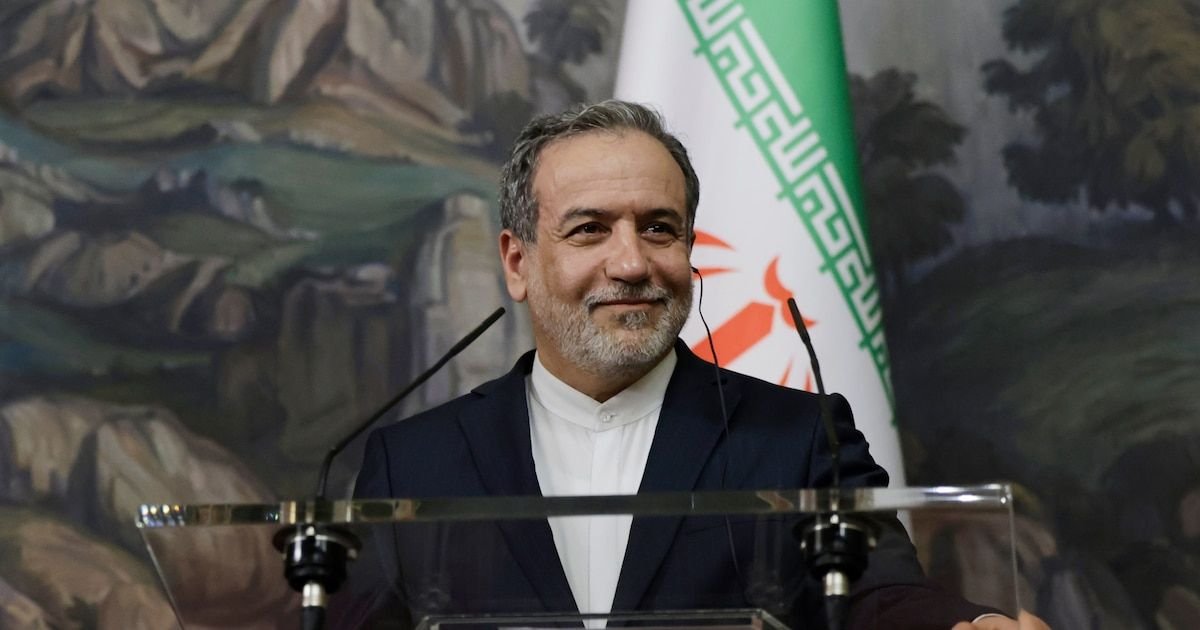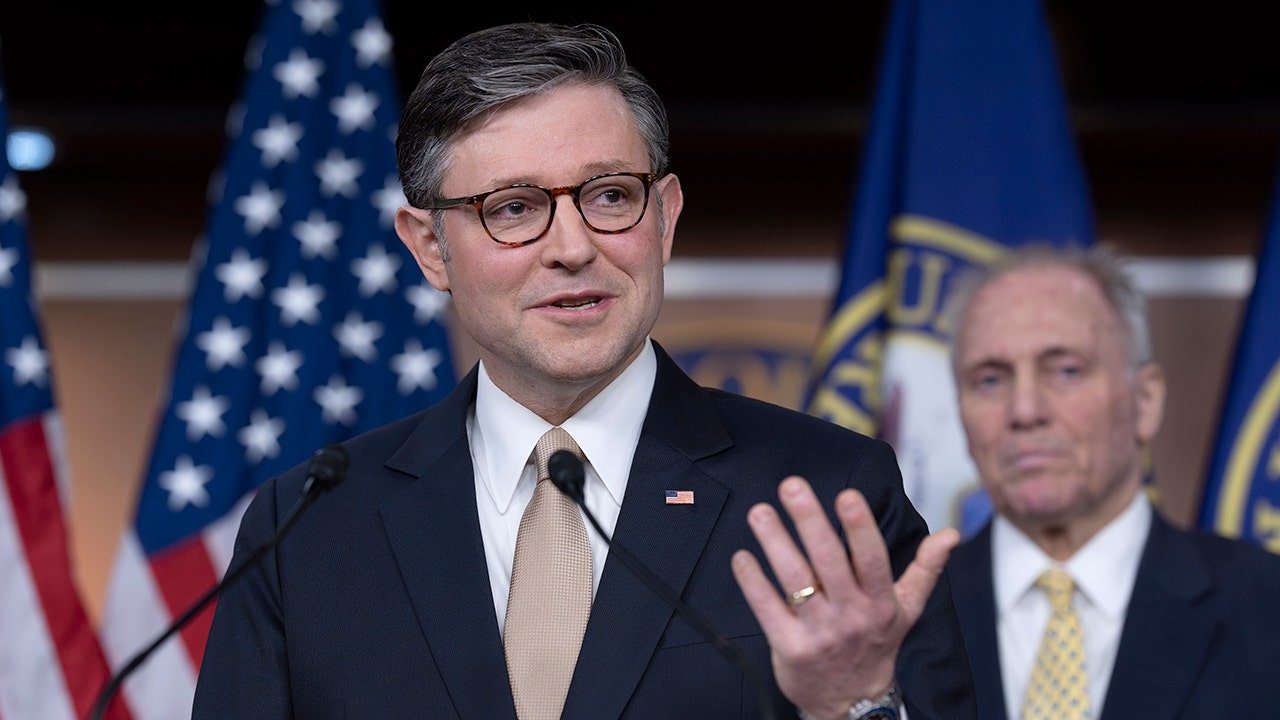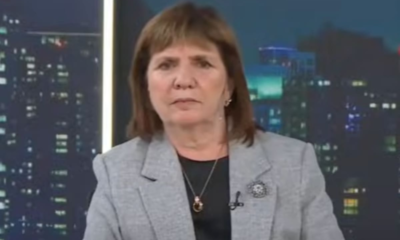INTERNACIONAL
El régimen de Irán no descartó retomar los diálogos nucleares con EEUU, pero advirtió que su “capacidad militar” no es negociable

El régimen de Irán indicó este sábado que está estudiando los detalles con vistas a una posible reanudación de las conversaciones sobre su programa nuclear con Estados Unidos.
“Estamos revisando el calendario, el lugar, la forma, el contenido y las garantías requeridas” por Irán para eventuales negociaciones, declaró el jefe de la diplomacia iraní, Abbas Araqchi, principal negociador por parte de la nación persa.
Teherán y Washington estaban comprometidos desde abril en mantener una serie de conversaciones, pero el 13 de junio -dos días antes de una nueva reunión prevista en Omán- Israel, aliado de Estados Unidos, lanzó sorpresivamente un ataque contra Irán y sus instalaciones nucleares.
“Creemos que la cuestión nuclear iraní no tiene solución militar ni puede resolverse remitiéndola al Consejo de Seguridad. La única vía posible es una vía negociada y una solución negociada que garantice los intereses del pueblo iraní. Estos intereses incluyen, en particular, los derechos nucleares y, más concretamente, el derecho de Irán a enriquecer y ejercer este derecho, que es el principal tema de debate. La invasión militar también demostró que no puede arrebatarle esta tecnología, esta ciencia y este derecho al pueblo iraní“, manifestó Araqchi.
Tras advertir que la “capacidad militar” no es negociable, manifestó que Irán “no tiene prisa en entrar en negociaciones imprudentes” e insistió en que cualquier nuevo acuerdo nuclear debe respetar “su derecho”, conforme al Tratado de No Proliferación.

En otro orden, anunció que la relación con el Organismo Internacional de Energía Atómica (OIEA), responsable del monitoreo nuclear de la ONU, cambiará de modalidad y quedará bajo la supervisión estricta del Consejo de Seguridad Nacional del país.
Así lo comunicó el propio Araghchi, quien afirmó: “Nuestra cooperación con el organismo no se ha interrumpido, sino que adoptará una nueva forma”.
La decisión surgió tras la promulgación de una ley que suspendió los vínculos directos con el organismo internacional.
El presidente del régimen iraní, Masud Pezeshkian, firmó a comienzos de mes la suspensión de relaciones entre Teherán y el OIEA. El régimen había responsabilizado a su director, Rafael Grossi, de “facilitar” un ataque israelí y estadounidense contra instalaciones nucleares iraníes, al proporcionar información que consideraron “ambigua e inexacta” sobre el programa nuclear.
Según Araghchi, a partir de ahora “todas las actividades y la cooperación de Irán con la Agencia se llevarán a cabo a través del Consejo Supremo de Seguridad Nacional”, liderado por el propio presidente iraní pero con decisiones finales a cargo del líder supremo, el ayatollah Ali Khamenei, y su representante en el consejo, el secretario general Ali Akbar Ahmadian.
Las solicitudes de supervisión de instalaciones nucleares por parte del OIEA “se revisarán caso por caso, teniendo en cuenta las cuestiones de seguridad”.
Araghchi precisó que cualquier requerimiento del organismo será “revisado, evaluado y contestado” por el consejo, “en función de los intereses de Irán”.
La autoridad iraní insistió en que la cooperación “no se ha detenido”, pero a partir de ahora quedará totalmente supervisada por la cúpula de seguridad del estamento clerical. El anuncio se produjo en una reunión con embajadores y fue publicado por la agencia oficial de noticias IRNA.

En otro orden, el ministro de Defensa israelí, Israel Katz, advirtió que, si Israel tiene que volver a atacar a Irán, lo hará “con más fuerza”, a la vez que lanzó un mensaje para el líder supremo del país persa, Ali Khamenei, a quien le dijo que no existe lugar en el que pueda esconderse.
“No hay lugar donde podrá esconderse. Si tenemos que volver, lo haremos, y aun con más fuerza”, amenazó Katz a Khamenei y al resto de ayatolás de Irán durante su discurso en la ceremonia de graduación de pilotos de la Fuerza Área israelí el jueves.
Durante los 12 días de guerra entre Israel e Irán del pasado mes de junio, en los que murieron 30 altos mandos iraníes como consecuencia de los ataques israelíes, Khamenei permaneció oculto y no fue hasta el pasado sábado que hizo su primera aparición pública desde el inicio del conflicto.
“El brazo largo de Israel lo atrapará en Teherán, en Tiberíades (ciudad israelí), en Isfahán (ciudad iraní) o desde dondequiera que trate de amenazar y atacar a Israel”, prosiguió el ministro.
Israel atacó por sorpresa Irán la madrugada del 13 de junio con una serie de bombardeos sobre instalaciones militares y el programa nuclear del país persa, que respondió con sendos bombardeos contra territorio israelí.
diplomacía,politicos,viaje del ministro de asuntos exteriores de irán a rusia
INTERNACIONAL
Tailandia advirtió que los enfrentamientos armados con Camboya podrían derivar en una guerra “a gran escala”

Tailandia advirtió este viernes que los enfrentamientos armados con Camboya podrían escalar a una guerra a gran escala, en el segundo día consecutivo de hostilidades que ha dejado al menos 16 muertos y obligado a evacuar a más de 138.000 personas en ambos lados de la frontera.
“Si la situación se agrava podría derivar en una guerra, aunque por ahora sigue limitada a enfrentamientos”, declaró el primer ministro interino tailandés, Phumtham Wechayachai, ante la prensa en Bangkok.
La tensión se disparó el jueves debido a una disputa territorial de décadas entre los dos países del sudeste asiático, con combates que incluyeron el uso de tanques, aviones de combate, artillería y cohetes BM-21.
Se trata de la escalada militar más grave desde 2011 en una zona de 800 kilómetros de frontera, donde persisten áreas no delimitadas oficialmente, salpicadas de templos antiguos.
Según el Ministerio del Interior tailandés, las autoridades evacuaron a 138.000 civiles, incluidos 428 pacientes hospitalarios, desde cuatro provincias limítrofes con Camboya.
El balance oficial en Tailandia ascendió a 15 muertos —un soldado y 14 civiles— y 46 heridos. Por su parte, Camboya reportó un muerto y cinco heridos, en su primer informe oficial desde el inicio del conflicto.

Los enfrentamientos se reanudaron en la madrugada del viernes en tres puntos distintos, de acuerdo con el ejército tailandés. Según su versión, las fuerzas camboyanas lanzaron fuego con armas pesadas, artillería y cohetes múltiples, a lo que las tropas tailandesas respondieron con “fuego de apoyo apropiado”. El ejército agregó que los choques incluyeron seis zonas de combate el jueves, entre ellas dos antiguos templos.
En el municipio camboyano de Samraong, a 20 kilómetros de la frontera, periodistas de la agencia AFP registraron disparos lejanos de artillería durante la mañana. “Vivo muy cerca de la frontera. Tenemos miedo porque empezaron a disparar de nuevo sobre las 6 de la madrugada”, relató Pro Bak, un residente de 41 años que huía con su familia hacia un templo budista. “No sé cuándo podremos volver a casa”, añadió.
La crisis diplomática también se agravó. Tailandia expulsó al embajador camboyano y llamó a consultas a su representante en Phnom Penh, luego de que una mina terrestre hiriera a cinco soldados tailandeses. Camboya respondió retirando a todos sus diplomáticos en Bangkok, excepto uno, y degradando las relaciones al nivel más bajo.
El Consejo de Seguridad de la ONU se reunirá de urgencia y a puerta cerrada este viernes, tras una solicitud del primer ministro camboyano, Hun Manet.

En paralelo, Estados Unidos y Francia instaron al cese inmediato de las hostilidades, mientras que la Unión Europea y China expresaron una profunda preocupación y pidieron diálogo entre las partes.
Desde 2008 hasta 2011, los dos países ya libraron enfrentamientos en la zona, que dejaron 28 muertos y decenas de miles de desplazados. Una decisión de la Corte Internacional de Justicia en favor de Camboya calmó las tensiones durante una década. Sin embargo, la situación volvió a deteriorarse en mayo de este año, tras la muerte de un soldado camboyano en un nuevo choque fronterizo.
Los combates actuales reflejan la fragilidad de la paz en la región y han despertado la preocupación de la Asociación de Naciones del Sudeste Asiático (ASEAN).
El primer ministro de Malasia, Anwar Ibrahim, quien ocupa la presidencia rotativa del bloque, declaró haber hablado con sus homólogos de Camboya y Tailandia, a quienes pidió diálogo inmediato. Según dijo, ambos mostraron “señales positivas y predisposición” a buscar una salida pacífica.
(Con información de AFP)
Asia / Pacific,Defense,Diplomacy / Foreign Policy,SINGAPORE
INTERNACIONAL
Fox News Poll: The GOP is seen as more likely to have a clear plan for the country

NEWYou can now listen to Fox News articles!
With the 2026 midterm elections more than a year away, a new Fox News survey finds that while the Republican Party has lost some ground to the Democratic Party on handling key issues, voters are more likely to think the GOP has a clear plan for dealing with the country’s problems.
The survey, released Thursday, finds that by a 10-point margin, more voters think the Republicans have a clear plan for the U.S. than the Democrats: 43% vs. 33%. Still, majorities feel neither the GOP (54%) or the Democrats (64%) have a plan. This is about where sentiment was three years ago, the last time the question was asked.
FOX NEWS POLL: TRUMP FACING HEADWINDS AT SIX-MONTH MARK
Far more Republicans (79%) than Democrats (51%) are confident their party has a clear plan, and that’s what hurts the Democrats. While at least two-thirds of independents feel neither party has a plan, more trust the GOP (30% vs. 25%).
At the same time, the survey shows some significant erosion in the GOP’s handling of key issues compared to the last time Fox asked in 2023, including in areas where they are traditionally preferred.
Voters view the Republican Party as better able to handle national security (by 14 points), immigration (+6R), and government spending (+5R) while the Democratic Party is favored on climate change (by 23 points), health care (+19D), social security (+17D), education (+15D), and energy policies (+6D).
The parties are rated about equally on inflation (+1D), gun policy (even), the economy (+1R), and foreign policy (+3R).
Compared to 2023, support for the GOP is down on immigration by 4 points, national security by 6, government spending by 6, foreign policy by 9, and the economy by 14. Plus, the Republicans’ 12-point advantage on inflation has disappeared, as Democrats have a 1-point edge today.
While the Democrats have largely maintained support on their best issues, it’s noteworthy they saw a 12-point increase on education, as voters have been split on who would better handle the issue for the last few years.
FOX NEWS POLL: APPROVAL OF SCOTUS AT 5-YEAR HIGH, REBOUNDING FROM RECORD LOW IN 2024
These shifts can mostly be attributed to self-identified Democrats solidifying their preference for their own party’s handling of the issues, as well as independents lessening their support for Republicans or switching to Democrats.
Self-identified Republicans continue to express high levels of support for their party on the issues.
«Independents and even some Democrats had soured on President Biden and the Democratic Congress by 2023 and 2024, but they have shifted to the left a bit in 2025 in response to the policies of President Trump and the Republicans,» says Republican pollster Daron Shaw, who conducts the Fox News survey with Democrat Chris Anderson. «An appreciable part of this is performance related. Without obvious economic and foreign policy victories, independents and soft Democrats could drift to the left, which could scramble the electoral dynamic heading into 2026.»
Overall, views of both major political parties are underwater. By 2 points, the Republican Party has a slightly better favorable rating (44% favorable) than the Democratic Party (42%), but more than half view both parties negatively (56% and 57% unfavorable, respectively). That’s relatively unchanged since April.
Positive views of the Republican Party have shown steady growth since October 2019, while the Democratic Party has been on a downward trajectory, reaching a record low in April (41% favorable).
The Republican Party enjoys more support among their party faithful (83% have a favorable view) than the Democratic Party (78% favorable). Seven in 10 independents have a negative view of both.
CLICK HERE FOR CROSSTABS AND TOPLINE
Conducted July 18-21, 2025, under the direction of Beacon Research (D) and Shaw & Company Research (R), this Fox News survey includes interviews with a sample of 1,000 registered voters randomly selected from a national voter file. Respondents spoke with live interviewers on landlines (114) and cellphones (636) or completed the survey online after receiving a text (250). Results based on the full sample have a margin of sampling error of ±3 percentage points. Sampling error for results among subgroups is higher. In addition to sampling error, question wording and order can influence results. Weights are generally applied to age, race, education, and area variables to ensure the demographics of respondents are representative of the registered voter population. Sources for developing weight targets include the American Community Survey, Fox News Voter Analysis and voter file data.
INTERNACIONAL
«Fake news»: la Casa Blanca trata despegar a Donald Trump del caso Epstein y frenar la tormenta política

La ofensiva contra Barack Obama
Donald Trump,Jeffrey Epstein,Estados Unidos

 ECONOMIA3 días ago
ECONOMIA3 días agoEl consumo en Argentina crece 4% en junio, ante menor inflación y más crédito

 POLITICA1 día ago
POLITICA1 día agoMáximo Kirchner declaró una fortuna de 8.300 millones de pesos: representa un 76% más que el año anterior

 POLITICA2 días ago
POLITICA2 días agoLos organizadores de la Derecha Fest pasaron un video de Villarruel y algunos asistentes gritaron “traidora”





































